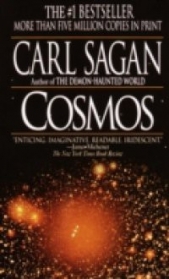The Schopenhauer Cure

The Schopenhauer Cure читать книгу онлайн
Внимание! Книга может содержать контент только для совершеннолетних. Для несовершеннолетних чтение данного контента СТРОГО ЗАПРЕЩЕНО! Если в книге присутствует наличие пропаганды ЛГБТ и другого, запрещенного контента - просьба написать на почту [email protected] для удаления материала
discussed a good many things in agreement; eventually, however, a certain
separation proved unavoidable, as when two friends, having walked together so
far, shake hands, one wanting to go north and the other south, and very soon
losing sight of one another.»
Arthur was hurt and angry at being dismissed, but internalized Goethe`s
respect for his intelligence and continued for the rest of his life to honor Goethe`s
name and to cite his works.
Arthur had much to say about the difference between men of genius and
men of talent. In addition to his comment that men of talent could hit a target that
others could not reach, whereas men of genius could hit a target that others could
not see, Arthur pointed out that men of talent are called into being by the needs of
the age and are capable of satisfying these needs, but their works soon fade away
and disappear during the next generation. (Was he thinking of his mother`s
works?) «But the genius lights on his age like a comet into the paths of the
planets.... he cannot go hand in hand with the regular course of the culture: on the
contrary he casts his works far out onto the path in front.»
Thus, one aspect of the porcupine parable is that men of true worth,
particularly men of genius, do not require warmth from others. But there is
another, darker aspect to the porcupine parable: that our fellow creatures are
unpleasant and repulsive and, hence, to be avoided. This misanthropic stance is to
be found everywhere in Schopenhauer`s writings, which are studded with scorn
and sarcasm. Consider the beginning of this passage from his insightful essay «On
the Doctrine of the Indestructibility of Our True Nature by Death»: «If in daily
intercourse we are asked by one of the many who would like to know everything
but who will learn nothing, about continued existence after death, the most
suitable and above all the most correct answer would be: вЂAfter your death you
will be what you were before your birth.`”
The essay continues with a penetrating and fascinating analysis of the
impossibility of two kinds of nothingness and in its entirety offers insights to
every human who has ever contemplated the nature of death. But why begin with
a gratuitous insult—«one of the many who would like to know everything but
who will learn nothing»?—Why contaminate sublime thoughts with petty
invective? Such dissonant juxtaposition is commonplace in Schopenhauer`s
writings. How disquieting to encounter a thinker so gifted yet so socially
challenged, so prescient yet so blinded.
Throughout his writings Schopenhauer laments any time spent in
socializing and conversation. «It is better,” he says, «not to speak at all than to
carry on a conversation as sterile and dull as is the ordinary conversation with
bipeds.»
He lamented that he had sought all his life for a «true human being» but
found none but «miserable wretches, of limited intelligence, bad heart, and mean
disposition.» (Except Goethe, whom he always explicitly exempted from such
diatribes.)
In an autobiographical note he states, «Almost every contact with men is a
contamination, a defilement. We have descended into a world populated with
pitiable creatures to whom we do not belong. We should esteem and honor the
few who are better; we are born to instruct the rest, not to associate with them.»
If we sift through his writings, it is possible to construct a misanthropist`s
manifesto: the rules of human conduct by which we should live. Imagine how
Arthur, adhering to this manifesto, might have fared in a contemporary therapy
group!
• «Do not tell a friend what your enemy ought not to know.»
• «Regard all personal affairs as secrets and remain complete strangers, even
to our close friends.... with changed circumstances their knowledge of the
most harmless things about us may be to our disadvantage.»
• «Giving way neither to love nor to hate is one half of world wisdom: to
say nothing and believe nothing, the other half.»
• «Distrust is the mother of safety» (a French proverb, cited approvingly).
• «To forget at any time the bad traits of a man`s character is like throwing
away hard–earned money. We must protect ourselves from foolish
familiarity and foolish friendship.»
• «The only way to attain superiority in dealing with men is to let it be seen
you are independent of them.»
• «To disregard is to win regard.»
• «If we really think highly of a person we should conceal it from him like a
crime.»
• «Better to let men be what they are than to take them for what they are
not.»
• «We must never show anger and hatred except in our actions.... it is only
the cold–blooded animals that are poisonous.»
• «By being polite and friendly, you can make people pliable and obliging:
hence politeness is to human nature what warmth is to wax.»
26
_________________________
Thereare few ways by
which you can make
more certain of
putting people into
a good humor than by
telling them of some
trouble that has
recently befallen
you, or by
disclosing some
personal weakness of
yours.
_________________________
At the next meeting Gill plunked himself down, his huge frame testing the
limits of his chair, waited until everyone arrived, and started the meeting.
«If no one else has something, I want to continue with the вЂsecrets`
exercise.»
«Let me insert a cautionary note here,” said Julius. «I don`t think it`s
a good idea to make this a prescribed exercise. Ido believe that folks do
better in the group when they reveal themselves fully, but it`s important to
move at our own pace and not feel pressured by any exercise to open up.»
«I hear you,” answered Gill, «but I don`t feel pressured. Iwant to
talk about this, and I also don`t want to leave Rebecca and Stuart hanging
out there alone. That okay?»
After noting the nods in the group, Gill continued: «My secret goes
back to when I was thirteen. I was a virgin, barely into puberty, covered
with acne, and Aunt Valerie, my father`s youngest sister...she was late
twenties or early thirties...used to stay with us from time to time—she was
between jobs a lot. We got along great, played around a lot when my folks
were out—wrestling, tickling, card games. Then one time, when I cheated
at strip poker and got her naked, things got real sexual—no longer tickling
but some serious feeling up. I was inexperienced and hormone–hot and
didn`t know exactly what was going on, but when she said to вЂstick it in,` I
said вЂyes, ma`am` and followed instructions. After that we did it anytime
we could until a couple of months later when my folks came home early
and caught us red–handed, flat out in the act—what`s that
called...flagrant...flagrant something?»
Gill looked toward Philip, who opened his mouth to answer but was
preempted by Pam, who said with lightning speed, «Flagrante delicto.»
«Wow, fast...I forgot we havetwo professors here,” murmured Gill,
who continued his account: «Well, the whole thing kind of messed up the
family. My dad didn`t get too hot under the collar about it, but my mother
was livid and Aunt Val didn`t stay with us anymore, and my mother was
furious with Dad for continuing to be friendly to her.»
Gill stopped, looked around, and then added, «I can understand why
my mother was upset, but, still, it was as much my fault as Aunt Val`s.»























